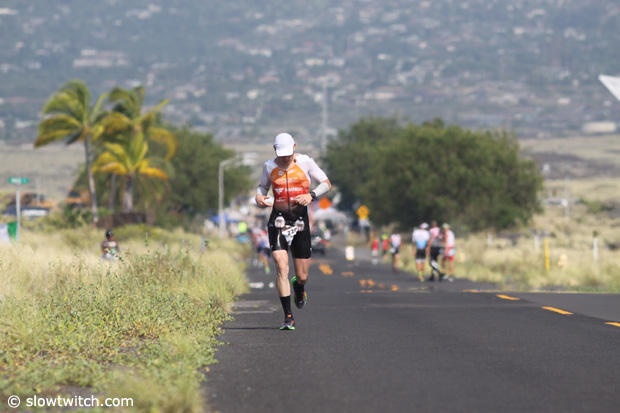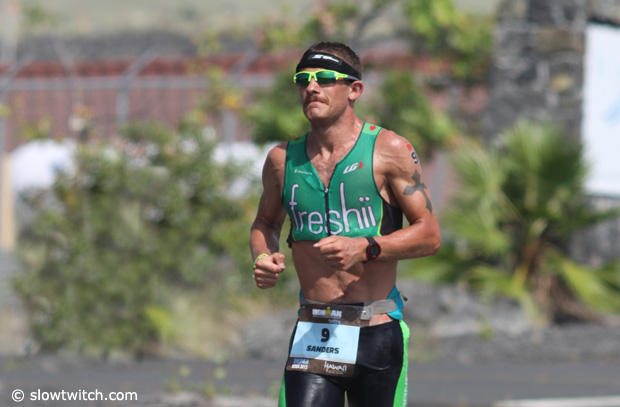Judging Intent
We've got another one of those great threads on the reader forum right now – the kind to keep you going through a chilly Fall. A brand new forum member writes:
"I am on the bubble for a KQ and have been on the podium in my last 3 Ironman races. My husband is much faster and could easily pace me to the needed time. If we register for the same race, can he legally pace me on the bike (I would stay out of his draft zone) and run? Can I get DQ'd for doing this?"

Forum regular Dev Paul came up with, of course, the right answer: "If your husband relinquishes his own race ambitions to go at your pace then you'll run the risk of a DQ."
"Who's to say he's abandoning his race?" writes another.
This requires an official to gauge intent. The response I've most often received from those who officiate at triathlons is that you can't judge intent. However, the rules of competition themselves have intent built into them. 3.0.4(a) of Ironman's rulebook (which is in most cases supplemental to, and not instead of, USAT's rulebook) allows for the suspension of racing privileges for a number of behaviors including, "intentional course cutting."
There are two race "behaviors" that have come under scrutiny recently. One involves the behavior of a contestant about to be overtaken on the bike leg. That cyclist can "force" the overtaking cyclist into a penalty if he understands the rules, uses them to his advantage, and if there is an observing official who likewise understands and strictly enforces the rule. Should such behavior be illegal? Debatable. But, to those who think so, to make it so requires the official to gauge the intent of the cyclist engaging in this strategy.
Then there is pacing. This is the third time I've written about this, and the second time in a month. Can't I find new things to write about? Yes. But this is kind of a big thing and it keeps coming up. There are three topics guaranteed to generate a lot of interest among triathletes: doping, course cutting and unauthorized assistance in the form of pacing. Why? They each violate the moral contract in racing and whether we all realize it or not, this moral contract means a lot to us.
Triathlon scratches an itch. There is an itch, sitting down on our DNA, to do things we can't or shouldn't do anymore. We can't up and decide one day to make war on the village in the next valley over. There is a warrior, explorer, wanderer, inside us and multisport offers us tools and venues for our inner gladiator. But there is an implicit understanding that if it's a knife fight, the combatants stick to knives rather than guns. We have rules.
Sometimes the violation is not knowable only by what we see but by what our instinct tells us. This is where triathlon's officials begin to hedge and get nervous. They are okay with drafting because it's viewable, measurable, not open to interpretation. The official can get the call wrong, but only if he's a bad practitioner, not because he was bad at judging intent.
Still, as noted above, intent is already built into triathlon's rulebook, if grudging, if rare. Over the weekend college football fans saw Michigan get penalized for, "Substitution with Intent to Deceive." This wasn't gauging the intent behind an act that is already a rule infraction (course cutting); here's a rule based entirely on intent. The official observes behavior that is perfectly allowable on its face – behavior that does not by itself trigger an infraction – and the behavior is converted into a violation based on an official gauging the motive behind the behavior. In this case, intent doesn't simply make an illegal act worse, it makes perfectly normal and legal behavior (player substitution) illegal.
To be clear on pacing – and I hear this a lot, so bear with my repeating it – Mark and Dave in '89's Ironwar were not guilty of unauthorized assistance or pacing because they always honored position rules during the bike and neither, during the bike or run, had abandoned his own ambitions for his own highest possible finish. Neither had subordinated his own race ambition for his highest finish in order to help the other to a high finish. Chrissie was thrown a CO2 cartridge by Rebecca Keat and that is not a rule violation because of the "sportsmanship" exception, otherwise known as the Slowman Doctrine, and I admit to making this up entirely. Still, I think there's an excusable exception for a random act of sportsmanship, unpremeditated, in the heat of the moment, with neither party subordinating his or her race to another.
Our sport needs to go to a new place, which is back to an old place, where during the sport's formative years we all understood what sportsmanship and fair play was – what it looked like. Yes, we had cheaters back then, 30 and 35 years ago, but for the most part we knew it when we saw it and we didn't excuse it or explain it. The institutional change we need to make is the adoption of intent into the rulebook, and allowing officials to make calls based on intent.
The image above is a stock image from Kona and not specific to this feature


